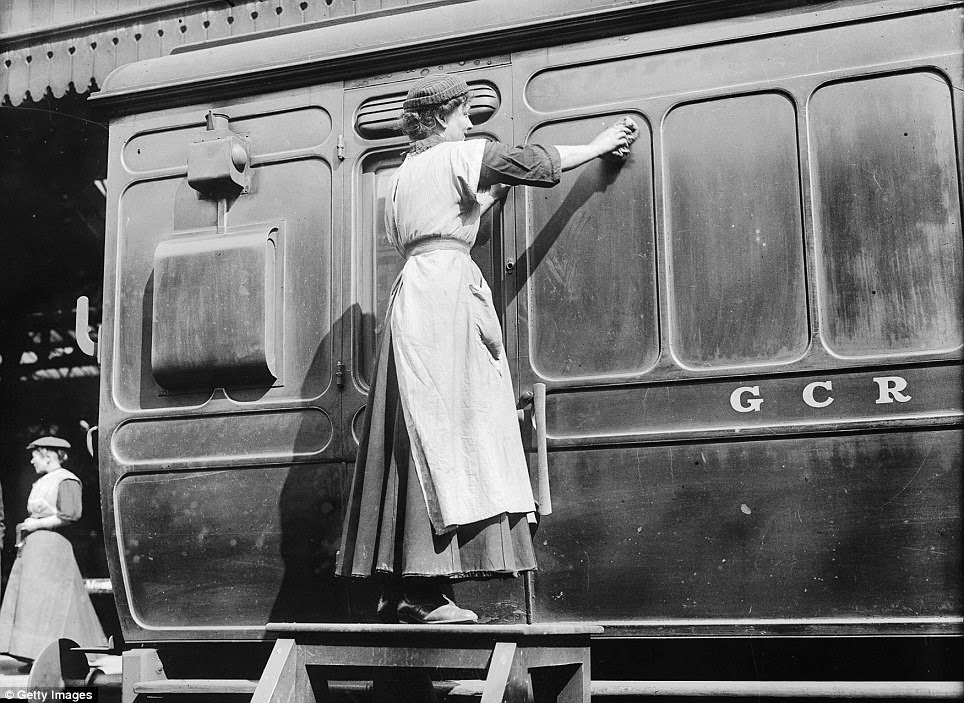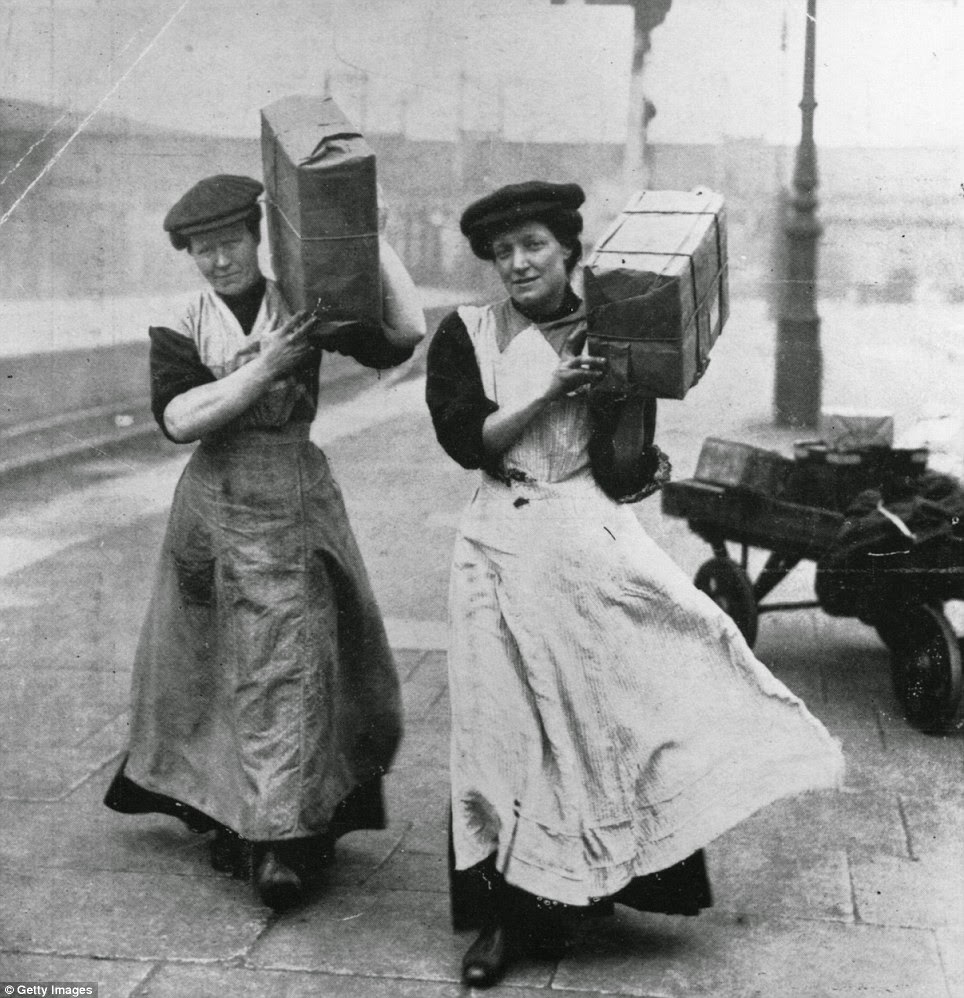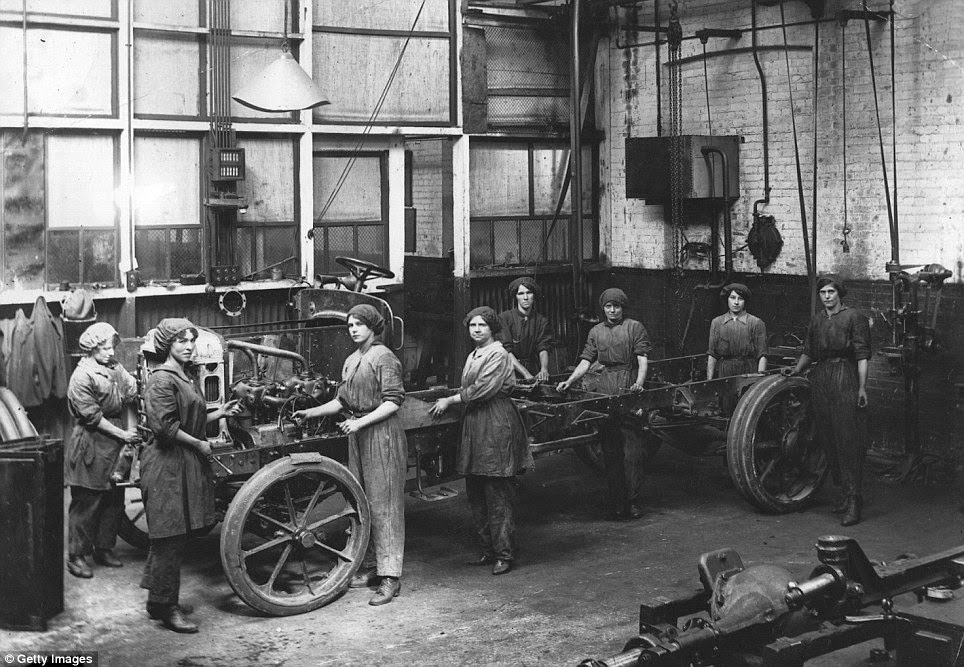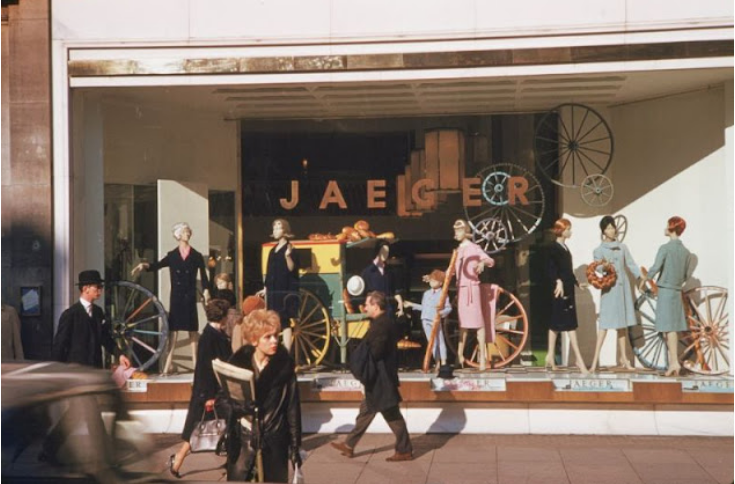.jpg) |
| Women war workers, including the distinctively white-capped and aproned VAD nurses, parade outside Buckingham Palace in 1918. |
.jpg) |
| Members of the Women's Royal Air Force arrive at Buckingham Palace, London, to attend a party for war workers in 1919. |
.jpg) |
| Female ambulance workers, such as this group photographed in November 1915, served both at home and on the front line. |
.jpg) |
| While some women became nurses, others worked in hospital workshops, such as this one at the Kensington War Hospital, making prosthetic limbs. |
.jpg) |
| 950,000 female workers were employed in British factories, including this worker, pictured making shell cases in a Vickers factory in January 1915 . |
.jpg) |
| 400 women died in munitions factories, between 1914 (when this image was taken) and 1918, when the war ended. |
.jpg) |
| Exposure to toxic sulphur left many workers with yellowed skin, while others were killed in explosions. One 1917 incident killed 73 and flattened 900 homes |
.jpg) |
| Despite being paid less than their male counterparts, many of the female munitionettes undertook dangerous and fiddly work. |
.jpg) |
| Members of the Women's Fire Brigade with their Chief Officer photographed in their uniforms beside an extinguished fire in March 1916. |
.jpg) |
| Members of the Women's Fire Brigade are put through their paces during a fire drill with hoses and extinguishers at full force in March 1916. |
.jpg) |
| A member of the Women Porters At Marylebone Station Group, pictured in 1914 giving a Great Central Railways carriage a thorough clean. |
.jpg) |
| Women employed in the transport industry increased by 555 per cent during the war, and included this pair of female porters at Marylebone Station in 1915. |
.jpg) |
| As this 1917 photograph shows, female war workers didn't just run trains and buses - they fixed and maintained them too. |
.jpg) |
| As part of the war effort, old paper had to be reused. These women are pulling apart old ledgers belonging to the London & South West Railway. |
.jpg) |
| The paper, as this photo taken on the 16th April 1917 shows, then had to be sorted into piles and stored. |
.jpg) |
| Women even took on tough, physical roles such as moving rubble, as seen in this photograph taken in Coventry during 1917. |



